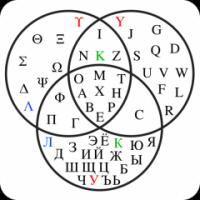Mensagens: 22
Idioma: English
RiotNrrd (Mostrar o perfil) 10 de março de 2013 23:15:13
sindyr:So if you dropped out the "La tago" as implicit, it would still be "Estas varma."If you could drop "la tago" as implicit, that would be true. But you can't without heavy context backing you up. Otherwise you're just emitting a sentence fragment.
Generally, Esperanto doesn't allow you to drop as many words as English does. Yes, you can speak informally with your friends and family however you like. But if you want to speak standard Esperanto (which is the recommended form in a global forum), it insists that you use the "Estas [some root]e" form for "It's [some adjective]".
"Estas varma" is grammatically just a fragment, whereas "Estas varme" is considered a complete sentence.
The difference between formal and informal Esperanto isn't as great as it is with English. It is best to just get into the habit of speaking the standard form, and get out of the habit of expecting elided components to be automatically understood. I don't think there's any hard and fast rules about that last bit, but "good" Esperanto style generally emphasizes clarity over conciseness.
sudanglo (Mostrar o perfil) 10 de março de 2013 23:35:45
A novel might begin:
Estis varma tago kaj eĉ la policano kiu staris senmove ĉe la angulo videble ŝvitis.
Estas varme however can stand alone.
sindyr (Mostrar o perfil) 10 de março de 2013 23:48:22
La tago estis longa, kaj pasis malrapida. Estis tre varma, ankaŭ.
The day was long, and passed slowly. It was very warm, also.
So in this context, it's obvious that the elided subject "tago" is there, albeit not spelled out. Unless it is more accurate to say:
La tago estis longa, kaj pasis malrapida. Ĝi estis tre varma, ankaŭ.
Or in this context, is it still supposed to be:
La tago estis longa, kaj pasis malrapida. Estis tre varme, ankaŭ.
...EVEN THOUGH warn in the second sentence IS AN ADJECTIVE?
I mean, if we say: "The bird was loud. It was blue, too." Blue is NOT an adverb there, blue is an adjective - am I supposed to say "La birdo estis laŭta. Estis blue, ankaŭ."?? "blue", not "blua"?
Again, the correct translation of "It was very warm, also" is either:
-"Estis tre varma, ankaŭ.", or
-"Ĝi estis tre varma, ankaŭ.", or
-"Estis tre varme, ankaŭ."
If it's the last, then we have a clear example of a word being used as an adjective receiving an adverbial ending.
Ĉu ne?
Again, thanks for the consideration.
TatuLe (Mostrar o perfil) 11 de março de 2013 02:20:18
sindyr:The day was long, and passed slowly. It was very warm, also."The day was long, and passed slowly. It was very warm, also." - "La tago estis longa, kaj pasis malrapide. Ĝi estis ankaŭ tre varma."
[...]
"The bird was loud. It was blue, too."
"The bird was loud. It was blue, too." - "La birdo estis laŭta. Ĝi estis ankaŭ blua."
In these sentences it is clear that "it" should be translated as "ĝi", because the "it"s are used to refer to specific nouns ("the day" and "the bird"). You can't elide nouns, like "la tago" or "la birdo", without replacing them with "ĝi", just like you can't leave out "it" in English when it refers to "the day" or "the bird". When it comes to replacing nouns, "it" and "ĝi" are used the same way.
The difference between "it" and "ĝi" is that "it" is sometimes used when it doesn't refer to any specific noun, like in the sentences "It's raining.", "Yesterday it was warm.", or "It was nice of you to come.". In those sentences, "it" is used only because English doesn't allow sentences without a subject ("Is raining.", "Was warm yesterday." and "Was nice of you to come." are not correct English).
So the sentence "It was very warm." is translated as "Estis tre varme." if "it" has no referent, and as "Ĝi estis tre varma" in contexts where "it" refers to something that was previously mentioned.
For example:
"Mi vidis birdon hieraŭ. Ĝi estis tre brua." means "I saw a bird yesterday. It [the bird] was very noisy."
"Mi vidis birdon hieraŭ. Estis tre brue." means "I saw a bird yesterday. It [the general situation in which I saw the bird] was very noisy."
sudanglo (Mostrar o perfil) 11 de março de 2013 11:23:47
However, if you saw a pretty girl in the street, you could turn to your companion and mutter 'tre bela, ĉu ne'
sindyr (Mostrar o perfil) 11 de março de 2013 18:36:17
La birdo estis amuza. Ĝi estis blua, ankaŭ.
But if the "it" we say in English doesn't really represent *ANYTHING*, then *THAT'S* when the -e ending and an adverb are used:
> Li ne havas monon. Estas bedaŭrinde.
> He doesn't have (any) money. It's regrettable.
>It's wet out.
>Estas melseke.
BUT
>I ate the bread. It was dry.
>Me manĝis la panon. Ĝi estis seka. (Or possibly even "Estis seka." or even just "Seka.")
Do I have this now? Adverb form when there is no specific subject, even implied? But whenever you have a subject, whether it is implied or present, the adjective is what you use?
matrix (Mostrar o perfil) 11 de março de 2013 19:08:29
sindyr:Do I have this now? Adverb form when there is no specific subject, even implied? But whenever you have a subject, whether it is implied or present, the adjective is what you use?You got it!
RiotNrrd (Mostrar o perfil) 11 de março de 2013 20:03:20
RiotNrrd (Mostrar o perfil) 11 de março de 2013 20:10:55
sindyr:(Or possibly even "Estis seka." or even just "Seka.")Actually, no. According to one of my sources (which I can't locate at the moment, but trust me) you cannot drop a "ĝi" that actually refers to something, and make it implied.
Meaning that in informal speech you can do anything you want, of course, but that in "correct" Esperanto the "ĝi" should never be dropped. So you would have to say "ĝi estis seka". As Erinja said earlier, if an Esperantist hears "estis seka" on its own, it will sound like a sentence fragment, not a full sentence with an implied subject.
So, when dealing with a "ĝi" that is just filler in English, drop it, and turn any adjectives into adverbs. But if the "ĝi" does refer to something, you can't drop it; adjectives always require a noun or pronoun.
Ganove (Mostrar o perfil) 11 de março de 2013 22:29:57
RiotNrrd:Does that mean that an elliptical construction comes under "informal speech"?sindyr:(Or possibly even "Estis seka." or even just "Seka.")Actually, no. According to one of my sources (which I can't locate at the moment, but trust me) you cannot drop a "ĝi" that actually refers to something, and make it implied.
Meaning that in informal speech you can do anything you want, of course, but that in "correct" Esperanto the "ĝi" should never be dropped. So you would have to say "ĝi estis seka". As Erinja said earlier, if an Esperantist hears "estis seka" on its own, it will sound like a sentence fragment, not a full sentence with an implied subject.
So, when dealing with a "ĝi" that is just filler in English, drop it, and turn any adjectives into adverbs. But if the "ĝi" does refer to something, you can't drop it; adjectives always require a noun or pronoun.
I thought of:
"Li iris hejmen, vestis piĵamon, kuŝiĝis sur la lito kaj tuj ekdormis."
Here every verb has the same personal pronoun "li".
And with "ĝi":
"Ĉu vi ne vidas la domon? Ĝi estas blanka kaj malgranda, havas du fenestrojn kaj troviĝas apud la arbaro."
In my ears, those sentences sound good but my ears could also err.



